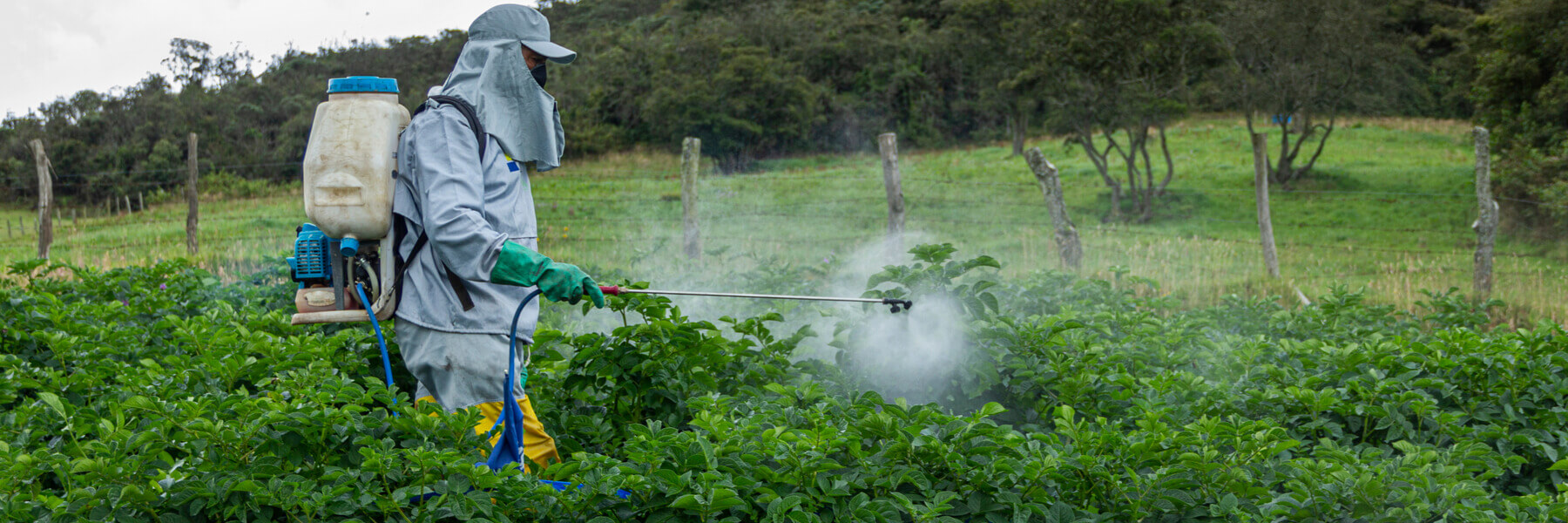How Do I Know If I Was Exposed to Paraquat?

Paraquat, a highly toxic herbicide, has recently made headlines due to its potential connection with an increased risk of developing Parkinson’s disease. Due to safety concerns, many individuals have found themselves wondering if they’ve been exposed to paraquat and, if so, whether they should be concerned about potential long-term effects.
The following guide answers the most commonly asked questions about paraquat exposure, including how exposure typically happens, who is most likely to be affected, and what to do if you believe you have been exposed.
Where is Paraquat Found?
While paraquat has been banned in many countries, in the United States, it’s still one of the most commonly used commercial farming herbicides. However, the typical homeowner should not have access to it. Paraquat is only available to licensed and safety-certified individuals. It is not available for public use and is not allowed to be used in residential areas.
Paraquat has been around since the 1960s and is the active ingredient in products like Parazone, Blanco, Bonfire Herbicide, Gramoxone, Devour, Firestorm, Para-SHOT, Parazone, Quik-Quat, and Helmquat. Since the chemical remains popular in the U.S., the risk of exposure is an ongoing concern.
If you’re wondering whether you’ve potentially worked with paraquat in the past, there are some common indicators to consider. Since the chemical is so dangerous, in the U.S., paraquat is injected with a distinctive blue die to avoid accidental ingestion. It also has a pungent smell. If you have worked with a commercial-strength weed killer that had a strong smell and blue color, there’s a chance you have been exposed to paraquat.
How Are People Exposed to Paraquat?
Paraquat exposure may happen through ingestion, inhalation, or contact with the skin. When the chemical is applied to plants and allowed to dry, it creates a greater chance of accidental inhalation of toxic fumes. This is why professionals wear masks when applying paraquat.
Individuals are commonly exposed to paraquat by accidentally breathing in mist or droplets during application. It may also enter the body by coming into contact with cuts in the skin.
Exposed to Paraquat? Find Out Your Legal Options
What is Considered a Dangerous Level of Paraquat Exposure?
Even small amounts of paraquat are considered highly toxic and possibly even fatal. If ingested, as little as one teaspoon of the chemical can cause death. It quickly absorbs into the body and creates toxic chemical reactions that can alter your cells, leading to widespread damage to the kidneys, liver, and lungs.
Any individual who has handled this chemical without the proper safety equipment, such as goggles, gloves, and a mask, may have been exposed to an unhealthy level of paraquat.
If you have been exposed but have not suffered any immediate effects, it’s still important to monitor your health for potential long-term effects, such as the development of Parkinson’s disease or other similar neurogenerative conditions.
Who is Most Likely to be Affected?
Since its use is restricted to licensed applicators, paraquat poisoning is now rare among the general public. However, licensed applicators and those who work in the landscaping or agricultural industry are often at risk for exposure. It’s also possible that these individuals may have been exposed to paraquat without their knowledge.
Agricultural Workers
Some individuals with the highest risk for paraquat exposure include farmers, landscapers, pest control professionals, aircraft employees who apply pesticides for farms, and any other workers who apply paraquat as part of their jobs. Even if all safety protocols were followed, it’s still possible that these individuals have been exposed to dangerous levels of paraquat and may develop long-term effects.
Paraquat Particle Drift
Individuals who live or work near fields and other agricultural areas may also be at risk for what is known as “paraquat particle drift.” This becomes more dangerous if the chemical is applied when conditions are dry and/or windy and temperatures are high. Smaller-sized particles are also more likely to travel. Under the right conditions, fine droplets of paraquat can travel several miles from the original application point.
Even if they did not have direct contact with paraquat, it’s possible for individuals who live on farms, are exposed to farm animals, drink well water, or live in rural areas to experience paraquat exposure without their knowledge. If you lived or worked in an agricultural or rural area and later developed Parkinson’s disease or a similar neurogenerative condition, exposure to paraquat may be to blame.
Signs of Paraquat Exposure
Depending on the type and degree of exposure, individuals may suffer symptoms of paraquat poisoning within a few minutes to a few hours. According to the Centers for Disease Control (CDC), some of the common signs of paraquat poisoning include:
- Nausea and vomiting
- Fast heart rate
- Abdominal pain
- Bloody diarrhea
- Difficulty breathing
- Disorientation
Since small amounts are often absorbed with each exposure, you may not notice symptoms until more serious conditions have developed. Over the longer term, paraquat exposure may cause serious or life-threatening conditions such as:
- Kidney failure
- Liver failure
- Lung scarring
- Pulmonary edema
Based on current research, scientists have also uncovered a strong link between paraquat exposure and the development of Parkinson’s disease. This has led to lawsuits being filed in many states throughout the U.S.
I May Have Been Exposed to Paraquat. Do I Qualify for a Lawsuit?
If you have known exposure to paraquat and have later developed Parkinson’s disease or other similar neurodegenerative conditions, you may be eligible for compensation. Additionally, if you have lived or worked in a rural or agricultural area and suspect you have developed health problems due to paraquat exposure, you may also benefit from a case evaluation.
The attorneys at Cooney & Conway are here to help. We have years of experience representing a wide range of clients who are victims of serious illnesses due to chemical exposure and other issues. To learn more about whether you may have a case, start by completing our free case evaluation form. We will review your information and reach out to you to discuss your options.




 English
English Spanish
Spanish